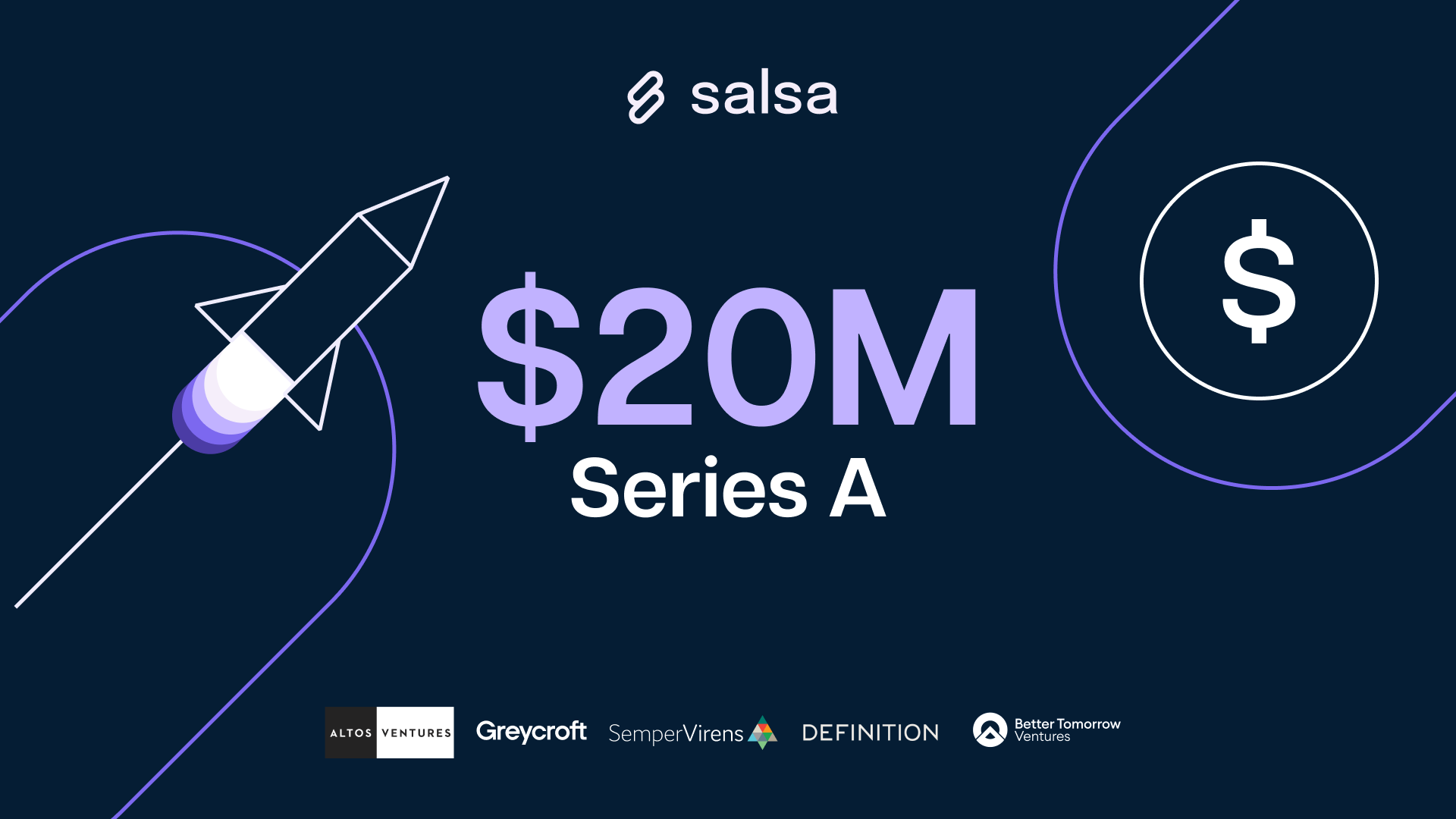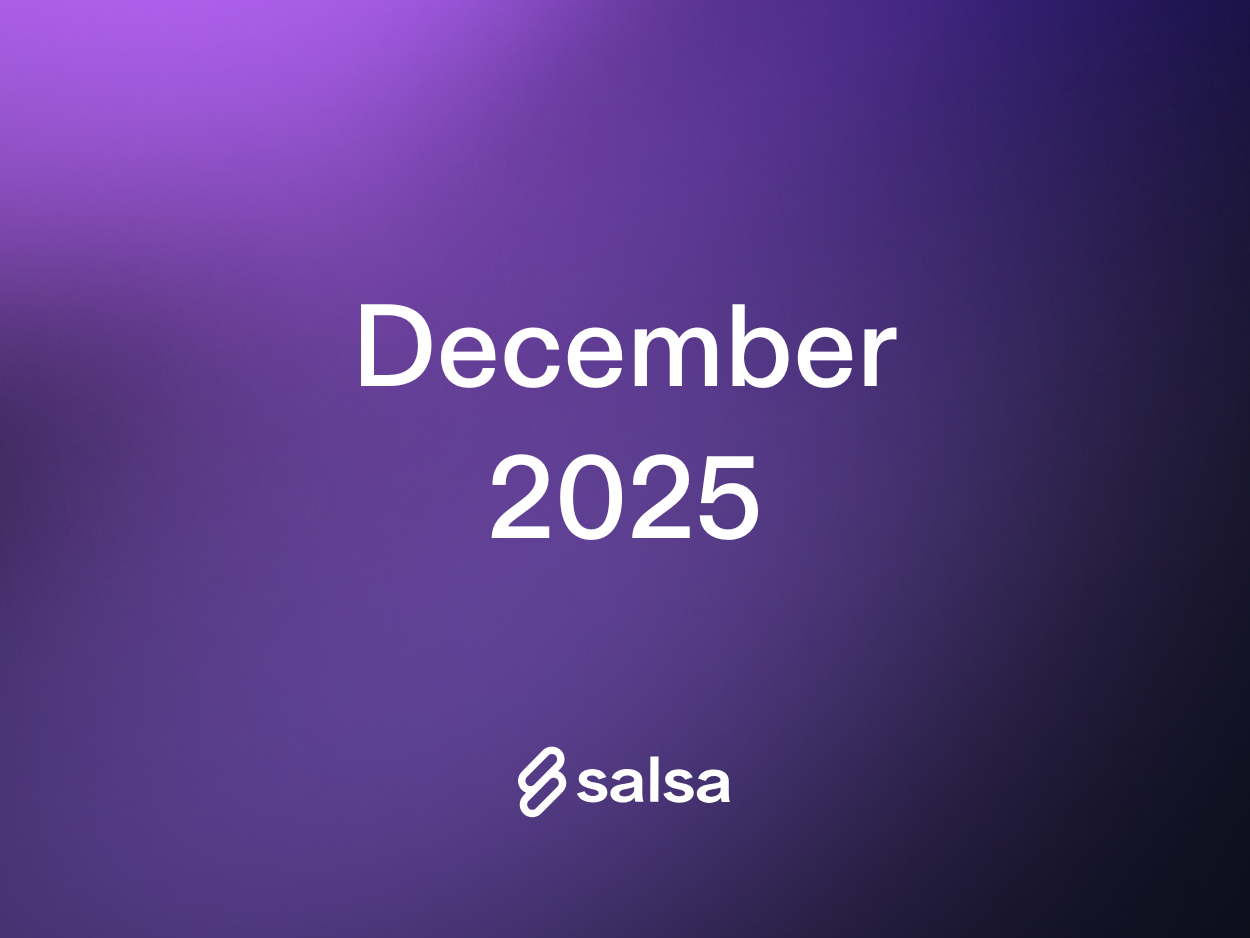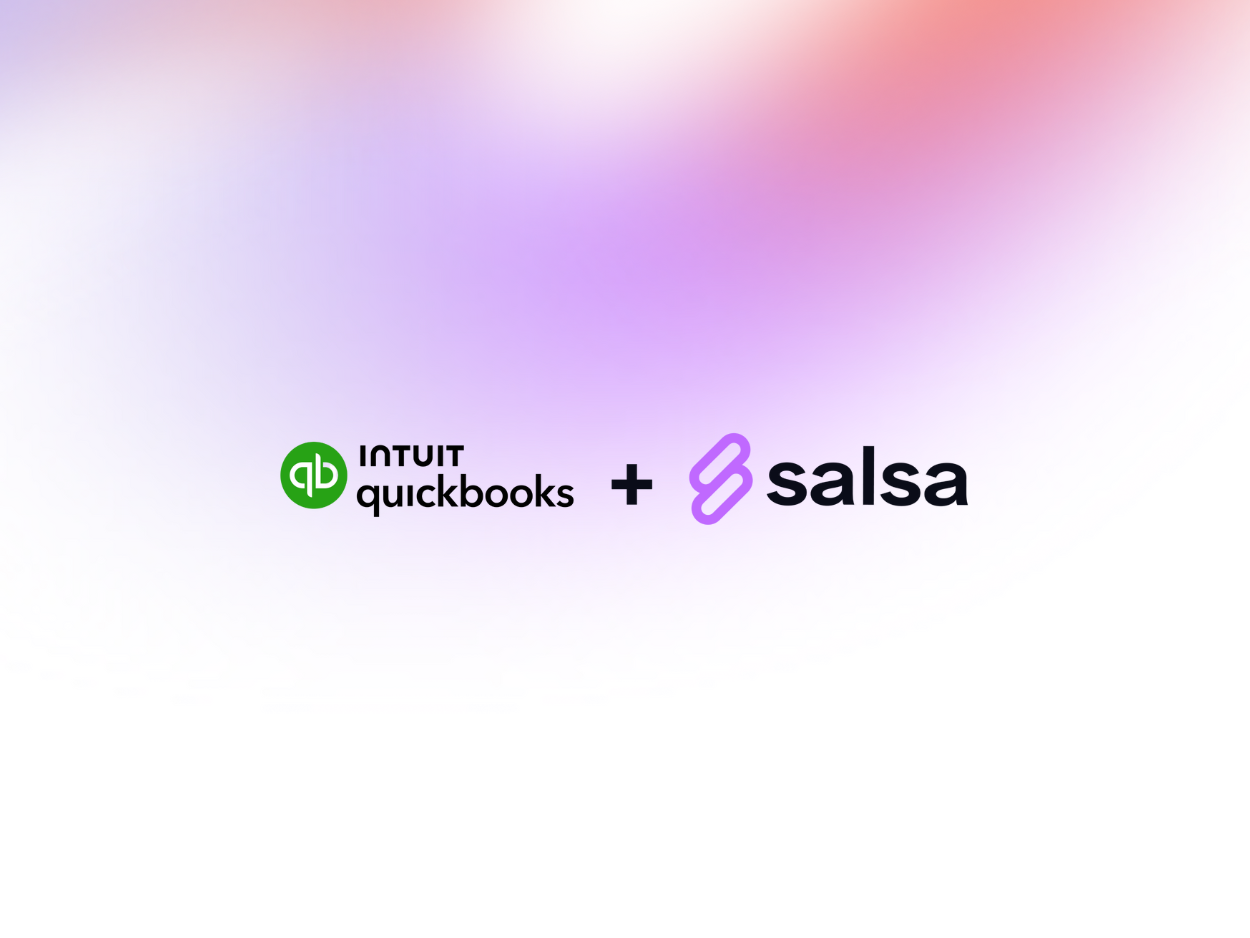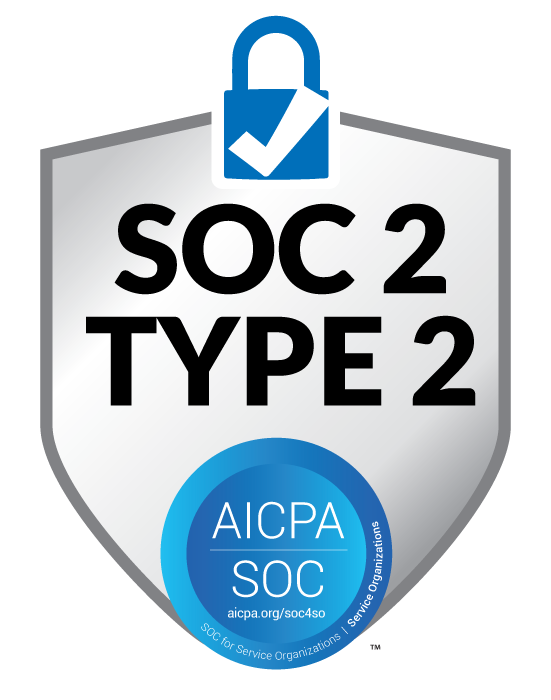
An example from the music industry shows how better infrastructure can transform industries that don’t want to change.
Our story at Salsa began when we were building, operating and maintaining the payroll engines at some of the most well-known payroll companies in the market. Every time we had an innovative payroll idea, we were blocked by the underlying infrastructure. Payroll rails are outdated, limiting and inflexible. Salsa was born from our frustration: we wanted to start over and build better infrastructure. Today Salsa makes it easy for anybody to use our infrastructure to bring a new payroll product to market. Salsa is part of an emerging new category called democratized infrastructure and we think that's the ticket to finally disrupting our industry.
Why? If our goal were to create a better payroll tool, we could have leveraged our deep experience in the space and launched our own competitive new payroll product. That’s the typical venture capital bet for improving payroll, and it’s the path most products before us have followed. Except we observed that launching single products has been a pretty slow and incremental way to change the world.
In our opinion: all the venture dollars available globally wouldn’t be enough to power the transformation the world really needs. So we don’t want to raise $746M to create one more Gusto, or $1.2bn to build another Rippling. [.c-line-highlighted]The market needs thousands of new payroll products that will challenge what’s possible today.[.c-line-highlighted] We need better products in better places, and new leaders of entirely new categories.
So, we could have launched our own product, and we also could have sold better infrastructure to the products you’re already using. But we have a vision to create a change that’s much bigger than better payroll. [.c-highlighted]Salsa will enable better employment. That's our vision, and it's bigger than the payroll industry.[.c-highlighted]
The distinction is our bet on who will build the future. Product companies bet on themselves to create the future. Infrastructure companies bet that the existing industry players will lead the change. But embedded and democratized infrastructure companies like Salsa make a very different wager: dramatic transformations will arrive only when everyone can build new concepts. The future of pay isn’t coming from the gates of ADP or Rippling or Gusto. It’s the new, untraditional players who will innovate, and change or define modern work. Big changes are underway not just for the mainstream, but especially underserved and unserved audiences, too. This is possible for the first time because we take something that used to be prohibitively complicated and expensive to build - a payroll engine - and make it very easy and very accessible. [.c-highlighted]No engine building, no need to open the hood. That's Salsa.[.c-highlighted]
Democratized infrastructure breaks the cycle of incremental changes in an industry

Can democratized infrastructure really do this?
It already happened in music.
What does music infrastructure have to do with payroll infrastructure? In 1950 it was hard to get your voice discovered. Recording was very expensive, and distribution was even more challenging. If you managed to do all of this, you had a chance at becoming one of 5,000 albums released each year in 1950. If you wanted the industry to provide better or different music in 1950 or even in 2000, you’d probably try to build another record label.
Then something broke the cycle. Today over 100,000 songs are created every 24 hours. How did we achieve this? In 1950, six major record labels produced an average of 833 records per year. We'd need another 43,800 record labels to publish our current volume. We didn't build record labels, we simply gave the world the infrastructure that was once proprietary and the rest is history. Speaking of history: in the past two years we’ve created as much musical content as the past two thousand years.
Infrastructure did this. And it wasn’t just existing musicians who were unblocked. Democratized infrastructure expanded who could produce: much (maybe most) of our music now comes from artists who would otherwise be unable to classically produce their own sounds. With GarageBand, the free software that came on your phone, and a $99 MIDI controller you can get tomorrow from Amazon, you have a more powerful recording studio than the most elite artists of decades past. MIDI, Logic Pro, Ableton and so many other tools make creation accessible to all. SoundCloud, Spotify, YouTube, Instagram and TikTok conquer the distribution. Infrastructure has broken the barriers to entry, and expanded both music and musicians.
Democratizing infrastructure allows for exponential amounts of creations for the world to critique or enjoy. And in music we’ve all voted that this system is superior to the one it replaced: we find and consume more music today than at any time in human history.
What’s the payroll analogy here? Well: it used to cost millions of dollars and years of work to build a single payroll product. That explains the slow pace of change. Legacy payroll providers have enjoyed this moat but it’s drying up: new builders will unleash much-needed creativity into this very stagnant industry. Their products and categories will come to life and they’ll be built on new infrastructure that makes it easier than ever to launch what’s next. Want to see what's coming?
Here are a few previews of the coming payroll transformation
Let's examine what might happen as we give the building blocks to payroll to other companies and products and allow them to build something new. These examples are simple derivatives but they capture the beginning of what's possible.
What if we gave payroll to a credit card? What would they build?
- They could offer a stream of purchasing power based on our work. The line between what's credit and what's money could blur and approach continuous real-time payment for our labor.
- They'd build a world with fair access to credit. A credit card connected with payroll could make safer credit decisions by leveraging our earnings. Everyone could get a credit limit that's fair for them, which is not how the world works today.
- We wouldn't have to worry about bills or late fees. Everything could be settled automatically through payroll. Fees punish those who can least afford them, so eliminating them creates an equitable impact where it's most needed.
What if a bank (or neo bank) could build a payroll product? What would they do?
- Banks will subsidize payroll. Banks have a big problem: it costs so much money to acquire and retain a customer. Payroll could be a powerful draw to attract a commercial banking and lending customer - - and retain them longer. What possibilities would be unlocked for small businesses if the cost of payroll were sponsored by the bank?
- Banks will allow businesses to hold their payroll funds longer. Regular payroll providers need to pull funds from the employer several days before workers get paid so it can settle. If the bank were the payroll provider, businesses could hold their funds until payday - vastly improving cash flow and working capital.
- Banks will create a new wave of consumer financial products linking data, wages and innovative delivery mechanisms.
What if a fast food chain could build payroll?
- They’d make payroll exciting. Fast food chains struggle to retain workers. In this industry, average retention is measured in weeks - so a little more retention is enormously valuable. What if they could easily build a payroll product? We think they’d gamify payroll. When workers unlock certain challenges you’d get paid instantly for them. Compensation would be fun and dynamic and instant.
What if Venmo or Paypal could build payroll?
- They’d make payroll simple. Imagine the millions of workers that could get the benefits of being an W2 employee if it weren’t hard to pay people compliantly. These workers could suddenly have access to credit and loans, access to social security benefits, access to unemployment insurance - because compliance and the interface was easy for the first time ever.
What if we gave payroll to our HR tools?
- Everyone would be paid fairly and we’d have better benchmarks. HR tools could use payroll data to make it easy to know what workers should be paid. The data for the first time ever would be both real and in real time. The world would become a little more fair than it is today.
- Performance management could be more equitable. Having a real link between performance and wages could help make performance management become fair, and create an actual correlation between pay and performance.
Let's build the future
[.c-line-highlighted]These examples aren’t just iterations of payroll products, they’re transforming employment itself.[.c-line-highlighted] These ideas are merely the limits of our imagination here at Salsa. Fortunately, our democratized infrastructure eliminates this very constraint: we’re not betting on ourselves to innovate. Our partners are the heroes of our future: they will dream, imagine, brainstorm, test, build and launch the future of employment. Our job is to make the infrastructure ready and accessible to the builders.
Remember: a single payroll product can’t do this. Providing infrastructure to existing products can’t do this. That’s why Salsa is democratizing the infrastructure - because you can do this. Get in touch with us if you’re ready to build the future!
Stay in the know
Sign up to receive regular product updates highlighting our feature announcements and product enhancements.


.png)




